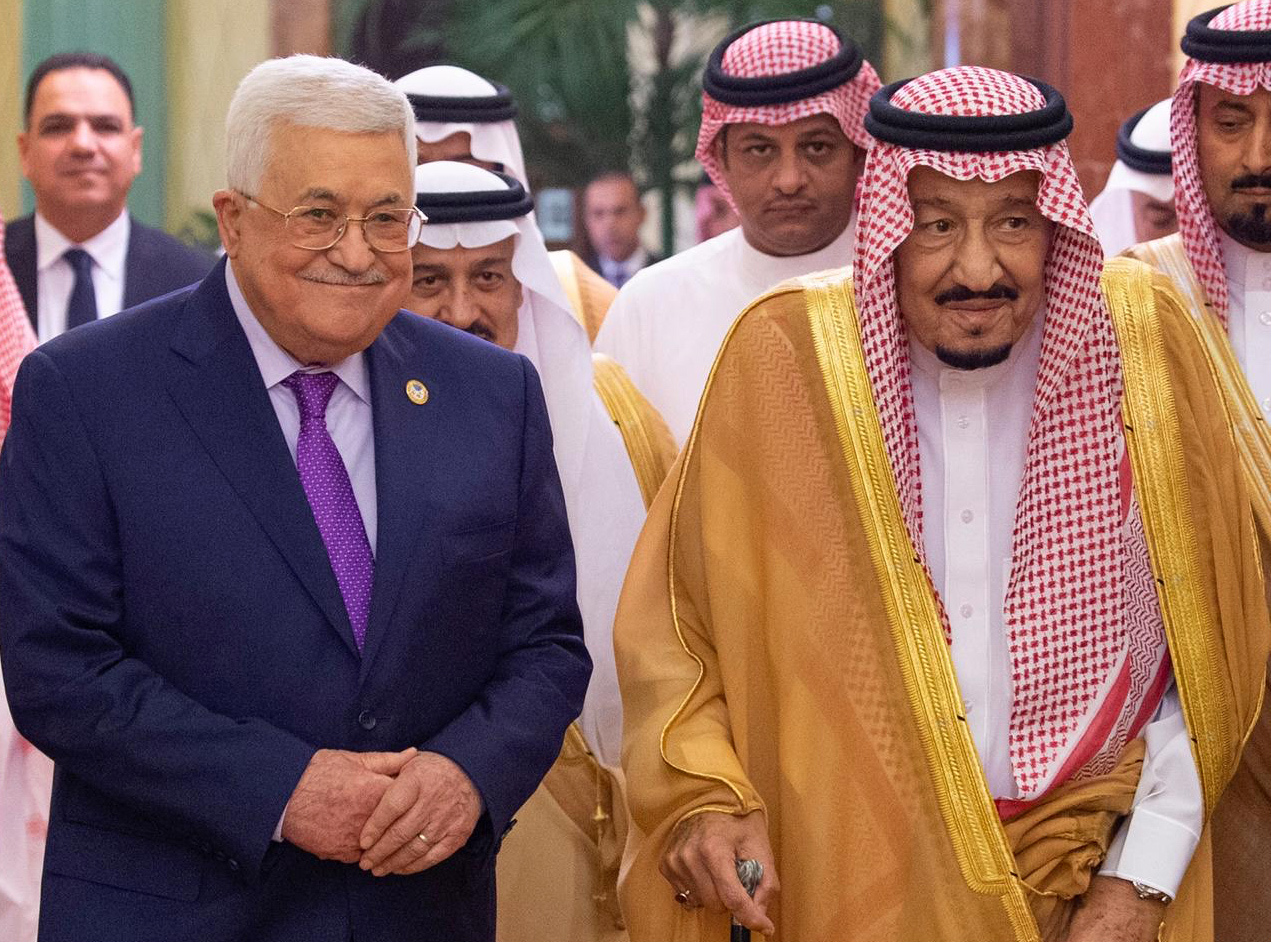A senior Saudi delegation will visit the West Bank this week for a meeting with Palestinian Authority leader Mahmoud Abbas as the kingdom edges closer to a normalization deal with Israel, the Reuters news agency reported Sunday.
The delegation will be led by Saudi ambassador to Jordan Nayef al-Sudairi, who was appointed last month as Riyadh’s first-ever non-resident ambassador to Palestine and its first-ever non-resident consul general to Jerusalem, the report said.
A senior Palestinian official Hussein al-Sheikh confirmed that al-Sudairi would be visiting Ramallah.
“We welcome His Excellency the Ambassador of the Kingdom of Saudi Arabia to the State of Palestine, who will present his official credentials to His Excellency President Mahmoud Abbas within a few days,” al-Sheikh tweeted Monday.
The visit comes as Israel and Saudi Arabia move closer to inking a US-brokered deal that would see Riyadh giving up on its earlier demand for a Palestinian state before normalization. However, the Saudis are still reportedly demanding significant Israeli concessions to the Palestinians as part of the deal.
The deal has seemed to be closer to a reality in recent days, with Saudi Crown Prince Mohammed Bin Salman telling Fox News on Wednesday that “every day we get closer” to his country normalizing ties with Israel, and Prime Minister Benjamin Netanyahu devoting much of his UN address to touting the possible deal with Riyadh and its effects on the region.

A handout picture provided by the Saudi Royal Palace on October 16, 2019, shows King Salman bin Abdulaziz (R) receiving Palestinian Authority President Mahmoud Abbas (L) in the capital Riyadh. (AFP/Saudi Royal Palace/Bandar Al-Jaloud)
In his speech on Friday, Netanyahu said Israel was on “the cusp” of a historic peace agreement with the Saudis, a deal he said would transform the Middle East, “encourage other Arab states to normalize their relations with Israel,” as well as “enhance the prospects of peace with the Palestinians.”
Still, the Saudis continue to insist publically on the need for a Palestinian state.
Addressing the UN General Assembly on Saturday, Saudi Foreign Minister Prince Faisal bin Farhan warned that regional security in the Middle East hinged on a “just, comprehensive solution to the Palestinian issue” and appeared to criticize Israel for “unilateral measures that are a flagrant violation of international law” while making no mention of the country.
“Security in the Middle East region requires the acceleration of… a just, comprehensive solution to the Palestinian issue; the solution must be based on resolutions in the international arena and must bring about a peace that allows [the] Palestinian people to have an independent state based on the 1967 borders with East Jerusalem as its capital,” he said.
He added that Saudi Arabia also “rejects and condemns all the unilateral steps that constitute a flagrant violation of international law and which contribute to the collapse of regional and international peace efforts and are hindering the path of diplomatic solutions,” an apparent reference to Israeli approval of West Bank settlement construction and the legalization of some outposts in recent months.
Saudi Arabia on Monday also issued a statement condemning incidents of Jews praying on the Temple Mount, which houses the third holiest site in Islam, the al-Aqsa Mosque.
“The Ministry of Foreign Affairs expresses the Kingdom of Saudi Arabia’s condemnation of the repeated provocative practices carried out by a group of extremists at al-Aqsa Mosque under the protection of the Israeli occupation forces,” the statement said.
Jordan, Egypt, Qatar, and several other Arab countries also issued condemnations.
The Temple Mount is the holiest place in Judaism, as the site of the biblical Temples.
Jews are allowed to visit under numerous restrictions, but not to pray.
Israeli settlers storm Al-Aqsa Mosque for the Yom Kippur Jewish holiday
Hundreds of Israeli settlers, escorted by Israeli police, stormed the Al-Aqsa Mosque complex in occupied East Jerusalem for the Jewish holiday of Yom Kippur. Dozens more took to the gates of the holy site in… pic.twitter.com/xA5v4d9Hr2
— Middle East Monitor (@MiddleEastMnt) September 25, 2023
Several hundred Jewish worshippers were seen in the compound on Monday, which was Yom Kippur, the Jewish Day of Atonement.
Israel captured the Temple Mount and Jerusalem’s Old City in the Six Day War and extended sovereignty throughout Jerusalem. Anxious to reduce friction with the Muslim world, however, and given that Orthodox sages generally counsel against ascending the Temple Mount for fear of treading on the sacred ground where the Temple’s Holy of Holies stood, Israel since 1967 allowed the Jordanian Waqf to continue to maintain religious authority atop the mount.
However, recent years have seen a growing number of incidents of visitors praying on the site, although Israel denies that there have been any changes to the status quo.
The sensitive site has been a frequent flashpoint, sparking wider violence across the region.

